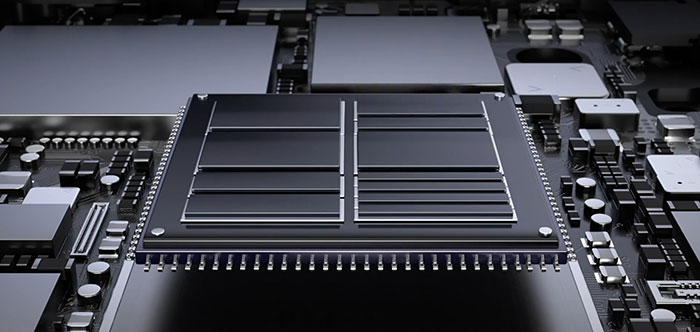Reports are emerging of Qualcomm's next high-performance SoC being readied for Windows on Arm machines, Always Connected PCs, Cellular PCs, Snapdragon PCs or whatever they might be called later this year. Qualcomm's latest collaborations with Microsoft and system making partners started back in 2017 with Windows 10 laptops based on the Snapdragon 835, it has since created PC-specific 'extreme' processors such as the Snapdragon 8cx, and the Snapdragon 8cx Gen 2 5G.
The new Qualcomm processor for Windows laptops is dubbed, at least internally, the Snapdragon SC8280. WinFuture has shared the first details of this SoC, and expects it to reach Windows 10 laptops sometime this year. It has unearthed the following significant indications with regard to the SC8280:
- There will be a basic and advanced (more powerful) variant
- Test platforms have been spotted with 8GB of LPDDR5, and 32GB of LPDDR4X, showing flexibility in this area
- Variants have been spotted in systems with an accompanying Snapdragon X55 modem on board
- Reference designs have screens up to 14-inches in diagonal
- The SoC packages seen are "significantly larger" than known Qualcomm mobile processors

The above details aren't of the depth we are accustomed to when bullet pointing the tech specs of a platform, but a lot of the specs are probably not finalised at this early-ish stage of development. We don't even know how many cores, or rough clock speeds to expect from the SC8280. Perhaps benchmark leaks will help provide an early sketch of the SoC and its performance but as usual the proof of the pudding will be in third party testing of shipping PCs based upon these processors. With Apple's M1 now being a known quantity, let us hope Qualcomm can lift its competitiveness to rival AMD and Intel – at least in the thin and light segment.
Reminder: Qualcomm bought out high performance chip startup Nuvia last week.













